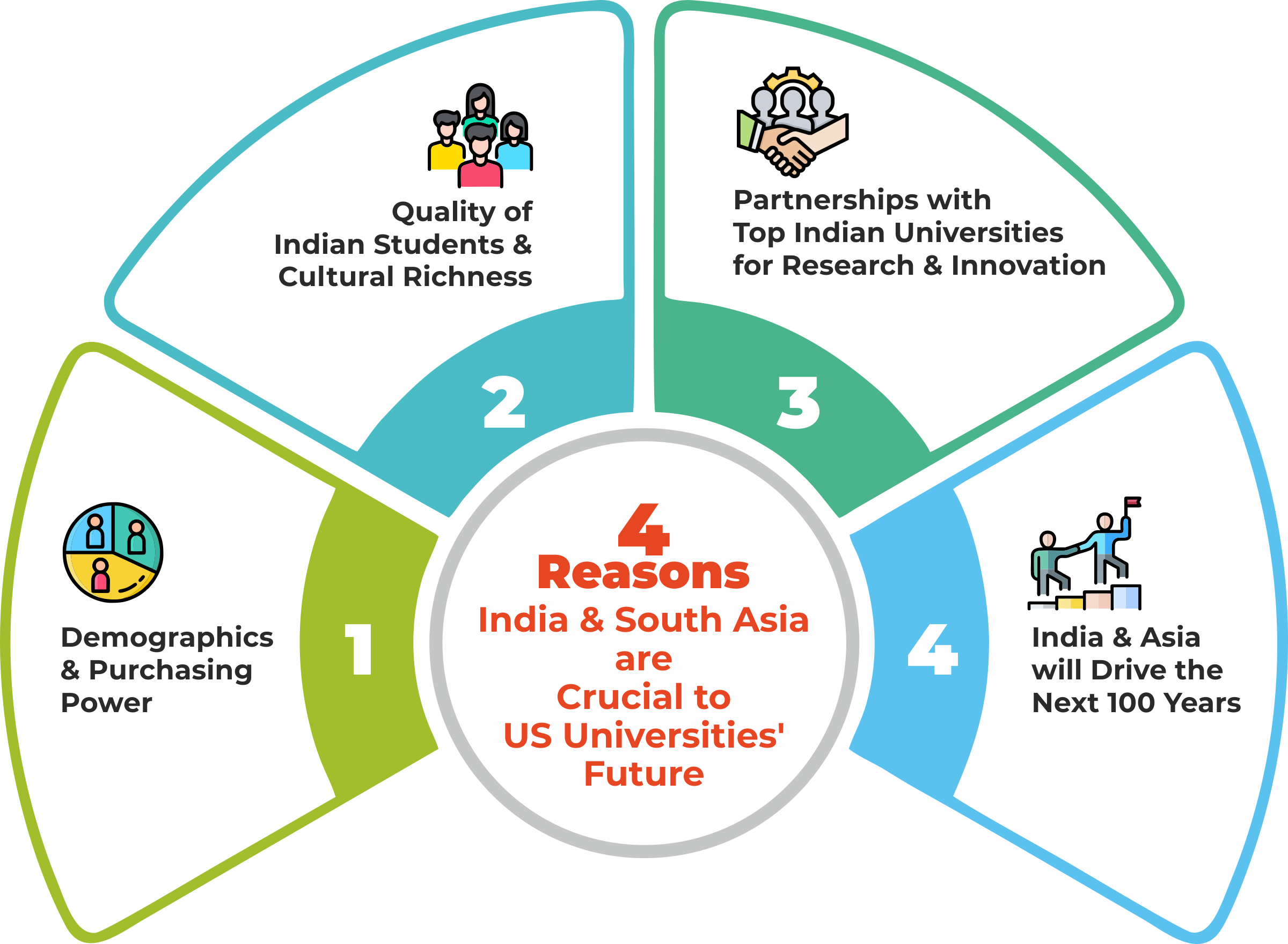
The 'Study in India, Startup in India' Phenomenon
represents a compelling fusion of academic and entrepreneurial pursuits, specifically designed to cultivate the innovative spirit of the modern student. Today's academic climate has seen a radical shift from traditional educational models, as students no longer aim to merely acquire knowledge but also yearn for platforms where they can create, innovate, and transform their ideas into reality. With this shift in mindset, the traditional boundaries between education and entrepreneurship are blurring, leading to an environment where ideas can blossom into commercially viable ventures. The concept of 'Study in India, Startup in India' is an embodiment of this progressive trend, providing students with access to a quality education system that goes beyond theoretical knowledge to promote creativity, innovation, and entrepreneurial acumen.
Demographics and Purchasing Power
India is set to have the world's largest youth population by 2025 (United Nations), and with a growing economy projected to be the third largest globally by 2030 (World Bank), the purchasing power of Indians is significant. Indian families place a high value on education, creating a strong demand for quality higher education and a willingness to invest in it.
Quality of Indian Students and Cultural Richness
Indian students have been traditionally known for their high academic caliber and performance. They also bring a unique cultural richness and diversity, enriching the campus community. As Michael Horn rightly states, "The intellectual prowess and cultural diversity of Indian students can greatly enhance the academic and cultural richness of our university campuses, making them global melting pots of ideas and innovation."
Partnerships with Top Indian Universities for Research and Innovation
Indian universities have been making impressive strides in research and innovation. Partnerships with these institutions offer U.S. universities the opportunity to collaborate on cutting-edge research projects and to broaden their academic horizons. These partnerships can also provide a gateway to a deeper understanding of the regional challenges, enabling research that is globally relevant yet locally responsive.
India and Asia Will Drive the Next 100 Years
With rising economic power, technological prowess, and demographic advantage, Asia, led by India, is poised to shape the next century. Higher education institutions that wish to remain relevant and influential in the coming decades need to align with this shift. As Dr. Raghuram Rajan asserts, "The global center of gravity is shifting towards Asia. Engaging deeply with this region, especially with India, will be crucial for institutions that aim to lead in the 21st century."
In summary, establishing a robust presence and forming deep local partnerships in India can offer U.S. universities an essential competitive edge, ensure their relevance in a rapidly changing global educational landscape, and open doors to a wealth of opportunities. The future of higher education isn't just about surviving - it's about thriving through strategic, global partnerships.


